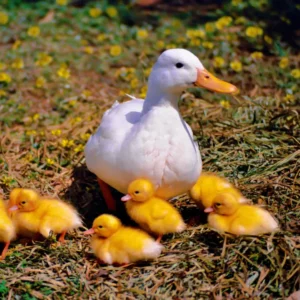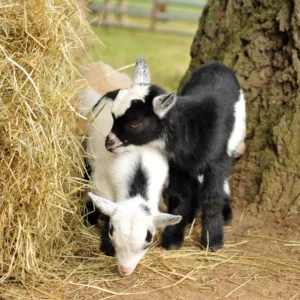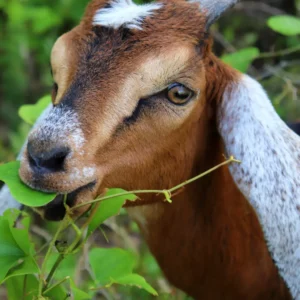Blog
Livestock for New Homesteaders
Embarking on a homesteading journey represents a return to simpler, more sustainable living. For new homesteaders, choosing the right livestock is a pivotal decision that impacts not only the success of their endeavor but also their daily lives. This guide highlights the best livestock for new homesteaders, considering the ease of care, space, nutrition, and health requirements of each species, as well as their uses and benefits.
Chickens: The Gateway Livestock
Usage: Chickens are versatile, providing eggs, meat, and pest control. They also contribute to composting by breaking down food scraps and providing manure.
Ease of Care: Chickens are among the easiest livestock to care for, making them ideal for beginners. They require basic shelter, regular feeding, and protection from predators.
Space Requirements: A small backyard can suffice for a modest flock, with guidelines suggesting about 2-3 square feet per chicken inside the coop and 8-10 square feet in an outdoor run.
Nutrition and Health: Chickens thrive on a diet of layer pellets, grains, and kitchen scraps. Access to clean water is crucial. Regular health checks for parasites and vaccinations are recommended.
Goats: The Multipurpose Companions
Usage: Goats can be raised for milk, meat, fiber (in the case of breeds like Angoras), and even as effective brush clearers.
Ease of Care: Goats are more demanding than chickens but offer significant rewards. They require secure fencing, companionship (as they are social animals), and protection from predators.
Space Requirements: Goats need ample grazing area; about half an acre per goat is recommended to provide enough forage.
Nutrition and Health: A diet rich in hay, pasture, and specific goat feed ensures good health, along with necessary minerals and clean water. Regular deworming and vaccinations are important.
Rabbits: The Efficient Meat Producers
Usage: Rabbits are raised primarily for meat but also provide fur and manure for gardens. They are a quick and efficient source of protein.
Ease of Care: Rabbits require less space and can be easier to manage than larger livestock. They need a well-ventilated, predator-proof hutch and daily monitoring.
Space Requirements: Each rabbit requires about 12 square feet of space. Hutches can be stacked to save space.
Nutrition and Health: A diet of hay, fresh vegetables, and a small amount of pellets, along with constant access to water, will keep rabbits healthy. They require minimal vaccinations but should be monitored for signs of illness.
Sheep: The Dual-Purpose Grazers
Usage: Sheep are valued for both their wool and meat. Certain breeds can also provide milk for cheese-making.
Ease of Care: Sheep are relatively low-maintenance but do require basic shepherding skills, such as shearing and hoof care.
Space Requirements: Similar to goats, sheep need ample grazing space to thrive. Plan for at least an acre for a small flock.
Nutrition and Health: A diet of pasture, supplemented with hay and possibly grain during winter, supports health. Regular deworming and vaccinations are necessary, along with shearing to prevent overheating and parasites.
Ducks: The Hardy Waterfowl
Usage: Ducks offer delicious eggs and meat, and their playful presence adds charm to any homestead. They are also excellent for controlling slugs and other pests.
Ease of Care: Ducks are hardy and less prone to common poultry diseases than chickens. They need access to water for swimming and cleaning.
Space Requirements: Ducks can thrive in smaller spaces than most livestock but require water access. A small pond or kiddie pool suffices.
Nutrition and Health: A diet similar to chickens’ but with higher niacin levels is essential for ducks. They also need clean, fresh water available at all times.
Protection From Predators
Click here to read a list of the best predator protection for livestock!
Conclusion: Finding the Right Fit for Your Homestead
For new homesteaders, the best livestock are those that match your land’s capabilities, your lifestyle, and your homesteading goals. Whether it’s the egg-laying prowess of chickens, the dual-purpose utility of goats, the efficient meat production of rabbits, the wool and meat of sheep, or the pest control and eggs of ducks, each type of livestock brings its unique benefits to the homestead. By understanding the care, space, nutrition, and health requirements of these animals, new homesteaders can make informed decisions that ensure both their livestock and their homesteading projects thrive.



